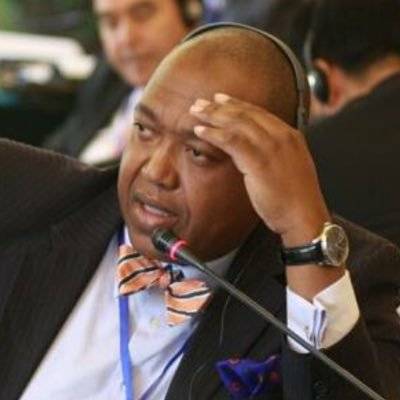Saudi Arabia is set to assume the presidency of the G20, the first time that an Arab state has held such a position. The G20 summit next year will, therefore, take place in Riyadh in November.
The G20 rotates its presidency amongst its member countries annually. Presiding over the G20 is a public relations boost for Crown Prince Mohammad Bin Salman and his country, which is a relief after months of negative publicity.
Although the leadership is rotational — so Saudi Arabia’s turn would have come around sooner or later — most Saudi citizens regard this as an “achievement” of Bin Salman. Young people in particular, from whom the Crown Prince draws support, are already using this opportunity to emphasise why Bin Salman is the right man for the job. Over 90 per cent of people in Saudi Arabia between the ages of 18 and 24 support his leadership and believe that he will move the country in the right direction, according to this year’s Arab Youth Survey conducted by Dubai’s leading PR agency ASDA’A Burson-Marsteller.
The G20 Summit in November 2020 will arguably be the most important event in Bin Salman’s political life to date. It is, therefore, expected that he will pull out all the stops to impress delegates and make the summit the best in the history of the group, at least as far as the visuals are concerned. During the 2018 summit in Buenos Aires, most leaders shunned the de facto ruler of Saudi Arabia at the G20 photo session; this was a huge embarrassment for him. Only President Vladimir Putin of Russia greeted him warmly. The summit was held just a few weeks after the brutal murder and dismemberment of journalist Jamal Khashoggi in the Saudi Consulate in Istanbul. At the same time, news of the devastation and humanitarian crisis caused by Saudi intervention in Yemen was filling the front pages. Neither Khashoggi’s murder nor the situation in Yemen helped Bin Salman’s case in Buenos Aires.
READ: Saudi Arabia releases 11 people questioned over foreign ties
However, during this year’s G20 summit in Osaka, it seemed that the Saudi leader had done some homework prior to flying to Japan. During the obligatory photo session, Bin Salman was positioned in front next to both US President Donald Trump and the host, President Abe Shinzo.
Nevertheless, Saudi Arabia’s presidency of the G20 could taint the legitimacy of the group. When the G20 began it embraced a very progressive agenda, which included scrapping the debt owed to global financial institutions such as the International Monetary Fund and the World Bank by poorer nations. The G20’s stance brought hope to many, particularly the oppressed and the indigent around the world. Having Saudi Arabia at the helm of the G20 does not help in this respect.
Moreover, the group has certain tacit expectations and conditions for it membership, particularly countries which assume the presidency. The priority is the lead country’s willingness to promote democratic principles, something for which Saudi Arabia is not particularly known for; indeed, the opposite is true. Basic human rights and media freedoms taken for granted in democracies are seriously curtailed in the Kingdom.
Having said that, there are some who believe that Bin Salman might be encouraged to embark on certain reforms as the next president of the G20, perhaps by releasing some political prisoners. There are a number of prisoners of conscience in Saudi prisons, amongst them the prominent cleric and political activist Salman Al-Awda, who is facing a death sentence for calling for political reforms. Releasing Al-Awda might be the right sort of gesture to send a positive signal to the G20.
READ: Bin Salman ‘bullying’ wealthy Saudis for money
Furthermore, there are suggestions that discussions between Saudi Arabia and Qatar are under way for the blockade of the small Gulf State to be eased. Saudi Arabia, the United Arab Emirates, Egypt and Bahrain have been leading the blockade against Qatar since June 2017. Bin Salman might use his position as G20 president to ease it. Again, such a development would no doubt be well received by the group’s members, most of whom have been calling for the cessation of such hostile action.
If Saudi Arabia fails to meet these expectations it will indeed be the worst year for the G20, as the presidency will attract the wrong kind of attention. However, paradoxically, that is where having the 2020 summit in Saudi Arabia could ensure that a perennial nuisance is removed from the group’s gathering. G20 summits usually attract a lot of protesters, but it is highly unlikely that anyone will be allowed voice their grievances on the streets of the Saudi capital. Every cloud has a silver lining, they say, and for Saudi Arabia’s presidency of the G20, that just might be it.
The views expressed in this article belong to the author and do not necessarily reflect the editorial policy of Middle East Monitor.








